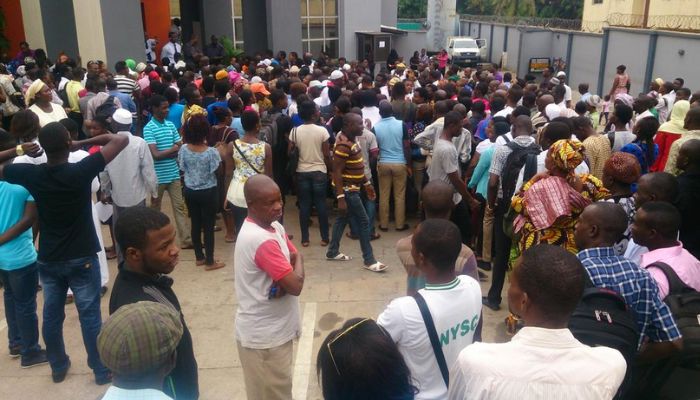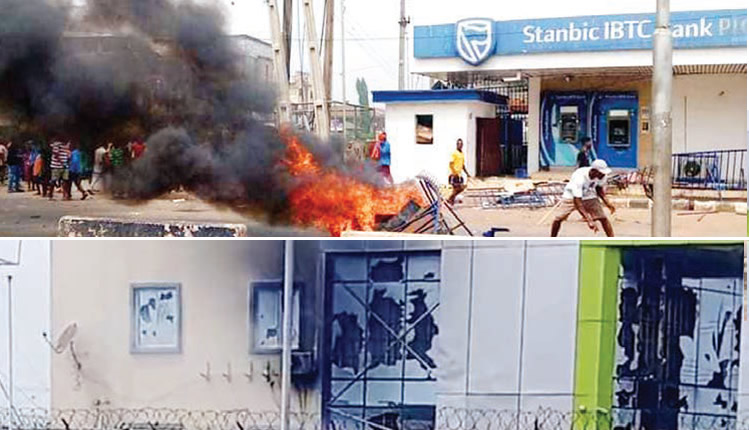The heavy sigh of relief that greeted the Central Bank of Nigeria’s (CBN) announcement that old notes were now valid and acceptable as legal tender till the end of the year would have been heard in neighbouring countries, such was the magnitude.
The CBN, in late 2022, had announced the redesign of the naira notes, specifically the 200, 500 and 1000 denominations and a number of reasons for this change were given by the governor of the Central Bank, Godwin Emefiele.
Some of them this writer analysed and they include mopping up cash stored away by individuals, combatting terrorism and kidnapping, tackling inflation, suppressing vote buying and engendering a cashless economy.
One does not need to be a genius to easily conclude that despite the lofty objectives of the naira redesign policy, it is one that has failed spectacularly, in a manner that will be studied by students of economy for case studies.
The anguish that Nigerians have faced has been telling with millions left stranded, unable to retrieve their hard-earned money as the vaunted cashless infrastructure was too weak to sustain the bombardment of online financial activities. Thousands of people have their money trapped somewhere in between point-of-sale machines, commercial banks and fintechs.

Many, like this writer, have decided that it wasn’t worth queueing for long hours at banks over a few thousand naira where the physical toll it would take on one will cost far more.
The Supreme Court judges are also human beings, more than one could say of the authorities behind the naira redesign policy, and they condemned the conception of the policy and its execution.
Justice Akomaye Agim who delivered the judgement stated that it was unconstitutional the way President Buhari wielded powers after failing to consult the Federal Executive Council, the National Economic Council and the Governors’ Forum while denying Nigerian citizens of their fundamental human rights in numerous ways.
The dust has finally settled on the disastrous policy but some entities managed to benefit from the chaos. Here are the winners and losers of the naira redesign policy.
Winners
Fintechs: If there was a time commercial banks could have shown Nigerians that they could give fintech companies a run for their money, it was the cash crisis period when physical banking made a mockery of civil wars. Instead, the gulf further widened as fintechs provided almost seamless internet banking. At least two mobile money agencies are smiling at their backend because of the millions of new subscribers they have acquired.
Filling stations: Fuel sellers arguably deal with more cash than any other people in the country and they milked the cash crisis opportunity very well as they became the go-to place for cash supply. Some were even accused of charging exorbitantly to give out money to stranded citizens.
Losers
Commercial banks: It was distressing to see bank branches set on fire and their properties destroyed as they became the scapegoat of CBN’s policy and bore the full brunt. This is not to mention the daily throng of the crowd they fend back daily, the curses, the drama and the violent pressure they endure.

While Emefiele and his subordinates move about in fancy cars and dish out press statements at will, commercial bank workers are forced to ‘dress down’ and be on alert against any mob action.
Godwin Emefiele – Only a few other people could rival Godwin Emefiele in terms of (un)popularity since the turn of the year. The way his name has been bastardised, from Elemiewere, Emere to Emefiole, speaks volumes of the vituperations the CBN governor has suffered. He may not care but the Delta indigene will go down as the most infamous governor of the apex bank in recent history.
PoS operators: As this writer predicted, the naira redesign policy and the consequent cash crunch effectively ended business for PoS operators. The scarcity of cash means that there is nothing to do business with. Only a few are able to get cash and what they get is nowhere near what they used to enjoy. Un(der)employed Nigerian youths who use mobile money agencies as a stopgap are now back on the streets looking for another means of livelihood.
**The views expressed in this article are that of the author and not of the organisation Business Insider Africa
Pulse





